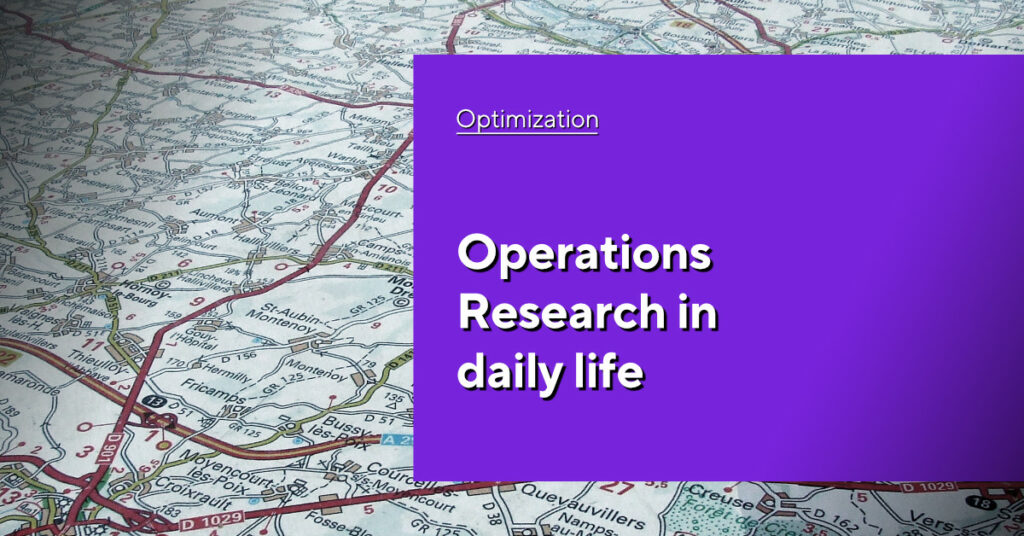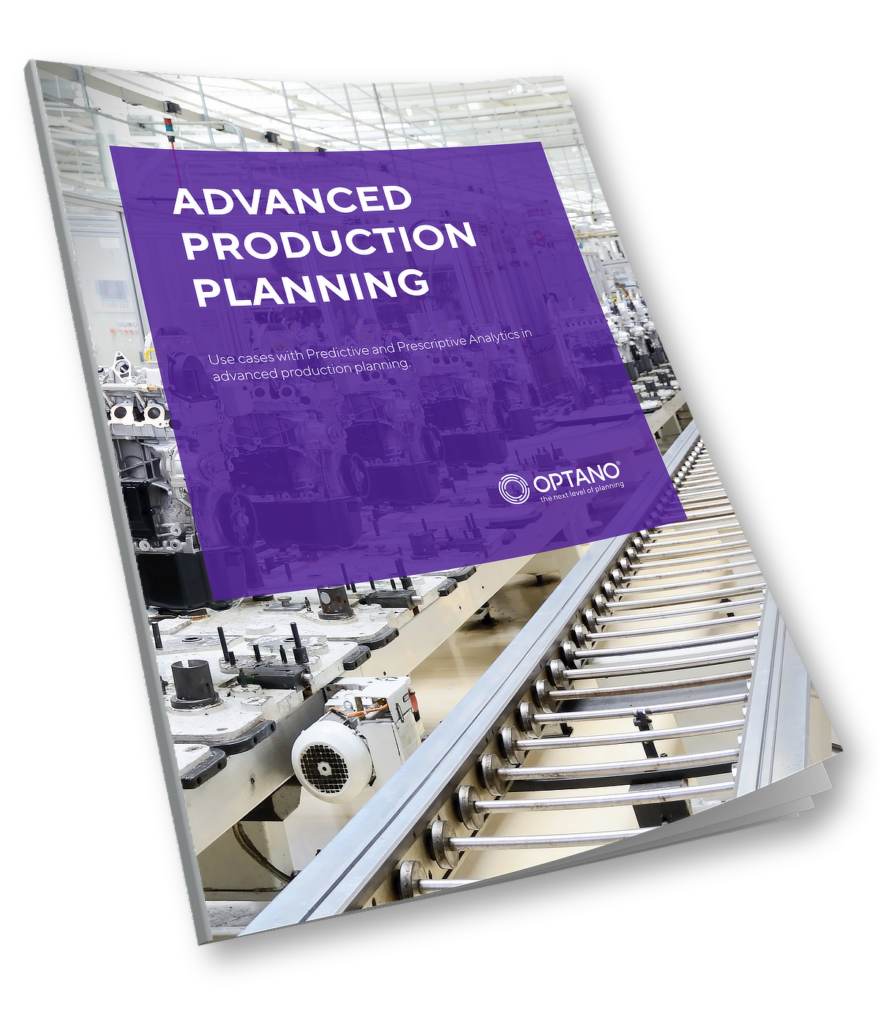Rescheduling for high-priority orders
Recently I picked up my son from school at 3pm as usual. We had not even left the schoolyard before he said: “I’ve been invited to Tim’s birthday party. He forgot my invitation. It starts at 3.45. Can I go, please?” And of course he had that puppy dog look you simply cannot resist.
Of course I couldn’t refuse but all sorts of thoughts ran through my head: “It’s in just 45 minutes… We don’t even have a present … I don’t know where Tim lives … I have to collect my youngest from kindergarden at 4pm.” One single question had been enough to turn my entire afternoon on its head.
In production plants, orders frequently come in at short notice which cannot wait. Most of these are not emergencies. Instead they are often from major customers who the company does not want to upset.
Here we want to show you how to get the best out of such a situation using mathematical optimization.
A major order comes in
While the birthday party meant that I had to reschedule for just one afternoon, orders that have to be fit in
spontaneously can have a very far-reaching impact on production:
- Minimizing delays
As long as production is in full swing for the new order, no other order can be produced, at least on the machines
required for this. Therefore, these orders have to be postponed. In this case, the previous production plan should not simply be put back as perhaps there is a better plan for the new conditions which entails fewer delays and therefore lower costs. The following questions need to be asked: Which orders can wait?Which orders should not be postponed (if this is at all possible) or rather: which customer will be more tolerant of a delay? - Optimally deploying available resources
Production for the new order naturally requires resources which might have been scheduled for other orders. Here
it is important to check for which orders all the resources are still available. If there are orders for which there is a lack of resources for production, i.e. which still need to be delivered, then these orders will have to be moved to the back of the production schedule. Here, it might make sense to bring forward an order which is not as important but for which all the resources are available if it can close the gap until the necessary resources have been delivered - Scheduling staff appropriately
Skilled workers are required for specific jobs. By changing the production plan, you are also changing your
employee shift schedule. Legal requirements, extra costs for overtime, etc all need to be taken into account.
More interesting articles
Call in the production planner!
The production planner needs to have a complete overview of all these aspects. There are countless potential production plans and coming up with the plan that causes as few delays and extra costs as possible is practically impossible if manual planning is deployed.A great deal of knowledge and experience is called for in order to devise an effective schedule which takes all of the constraints and dependencies into acocunt. And even under these conditions, it takes time. And time costs money because the production schedule is required for all further action.
But how can this process be expedited?
Mathematical optimization can help
For the optimization it is absolutely no problem to have all of the constraints in focus.
OPTANO Production to prioritize manually and reschedule optimally
Using drag-and-drop the order can now be moved and fixed to the desired position in the Gantt chart. When starting the optimization, OPTANO assumes that this order has been set and optimizes all of the other orders around it. A new optimal production schedule is then available which observes the priority order and all of the other constraints at the same time.
Reschedule quickly and easily with OPTANO production
Of course OPTANO prodution can do so much more than prioritize orders and plan around them. Whether it’s tactical or operational planning – with OPTANO production optimal plans which are customized to meet your requirements can be created quickly and easily.
With OPTANO production you canimprove your delivery reliability and maximize your machine capacity. Your
production planning is always at its otpimum level and enables you to get the very best out of any situation.
If you would like to learn more about how mathematical optimization can be of benefit to your production planning and what else it can offer, then download our factsheet “Advanced Production Planning using Predictive and Prescriptive Analytics”
Or why not contact us? Our consultants are happy to answer any of your questions about optimal production planning.
Anything is possible with the right approach
In order to fulfil my son’s priority order I didn’t need to use mathematical optimization as it wasn’t complex enough (also read: “What makes a problem complex?”). However I did need extra employees (my husband who quickly bought a present and drove our son to the party) and additional machines (my bike plus a bike trailer to pick up my other son from kindergarden). But when our son came home from the party, thoroughly exhausted but so happy, then all the re-scheduling and the stress was worth it.
Have you got your copy of our factsheet on this topic yet?

In our factsheet Advanced Production Planning we present some of the use cases of Predictive and Prescriptive Analytics in modern production planning which you can download here.
To obtain our factsheet, all you need to do is enter your contact details in the space below. A pop-up window will then open to download the whitepaper. Please note that by providing us with your email address, you agree that we may contact you on this topic. You may revoke this agreement at any time by contacting privacy@optano.com.







